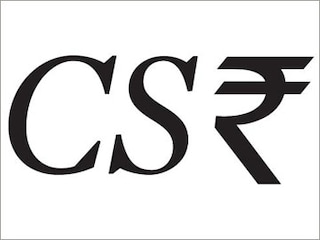CSR Report Card: Where Companies Stand
It's about time corporate India learnt to handle its social responsibilities


What can’t be measured, can’t be improved. That was the spirit behind our effort to gather data on how much listed firms are spending on CSR currently. It turned out to be one of the most difficult exercises we have undertaken. Despite reaching out to them individually, we realised that there are many, even among the top 100 firms by revenue, who don’t report their CSR spends or even declare the social causes they support. That’s because they aren’t required to do so by law. But all that will change when the new Companies Bill (which has already been passed by the Lok Sabha) becomes a law, possibly by the end of the year.
This data pack, compiled by CSRidentity.com, together with Forbes India, is still revealing enough, as it tells you how much each company will have to fork out on CSR, once they are bound by law.
“India’s top companies are ranked 1-100 based on Net Sales for the Financial Year 2012”
NOTABLE WORK BY SOME COMPANIES
Ashok LeylandOperates a FunBus in Chennai and New Delhi. This bus, equipped with a hydraulic lift, takes differently abled children and those from orphanages and corporation primary schools on a day’s picnic. The company also runs AIDS awareness and prevention programmes in its Hosur factories for about 3.5 lakh drivers.
Axis BankThe Axis Bank Foundation runs Balwadis which are learning places for children living in large urban slum clusters. It also conducts skill development programmes (PREMA and Yuva Parivartan) in motor driving, welding, mobile repairing, tailoring etc, for the youth in backward districts.
Bharat Petroleum CorporationIts rain water harvesting project Boond, in association with the Oil Industries Development Board, selects draught-stricken villages to turn them from ‘water-scarce to water-positive’. Some of BPCL’s other social programmes include adoption of villages, prevention and care for HIV/AIDS and rural health care.
Hindalco IndustriesIts CSR activities are concentrated in 692 villages and 12 urban slums, where it reaches out to about 26 lakh people. It has constructed check dams, ponds and bore wells to provide safe drinking water. In education, it awards scholarships to students from the rural schools it support. Its other interests include women’s empowerment and health care, in which it treats patients in hospitals, runs medical camps and operates rural mobile medical van services.
Indian Oil CorporationIt runs the Indian Oil Foundation (IOF), a non-profit trust, which works for the preservation and promotion of the country’s heritage. IOCL also offers 150 sports scholarships every year to promising youngsters. Some of its other initiatives lie in the domains of clean drinking water, education, hospitals and health care.
InfosysThe Infosys Science Foundation, set up in 2009, gives away the annual Infosys Prize to honour outstanding achievements in the fields of science and engineering. The company supports causes in health care, culture and rural development. In an interesting initiative undertaken by it, 100 school teachers in Karnataka, who were suffering from arthritis, underwent free surgery as a part of a week-long programme.
Mahindra & MahindraNanhi Kali, a programme run by the KC Mahindra Education Trust, supports education of over 75,000 underprivileged girls. The trust has awarded grants and scholarships to 83,245 students so far. In vocational training, the Mahindra Pride School provides livelihood training to youth from socially and economically disadvantaged communities. M&M also works for causes related to environment, health care, sports and culture.
Oil & Natural Gas CorporationIt offers community-based health care services in rural areas through 30 Mobile Medicare Units (MMUs). The ONGC-Eastern Swamp Deer Conservation Project works to protect the rare species of Easter Swamp Deer at the Kaziranga National Park in Assam. ONGC also supports education and women empowerment.
Tata Consultancy ServicesIts Computer Based Functional Literacy (CBFL) initiative for providing adult literacy has already benefitted 1.2 lakh people. The programme is available in nine Indian languages. Besides adult education, TCS also works in the areas of skill development, health care and agriculture.
Tata SteelIt comes out with the Human Development Index (HDI), a composite index of health, education and income levels, to assess the impact of its work in rural areas. Health care is one of its main concerns. The Tata Steel Rural Development Society aims to improve agricultural productivity and raise farmers’ standard of living.
First Published: Mar 18, 2013, 06:31
Subscribe Now